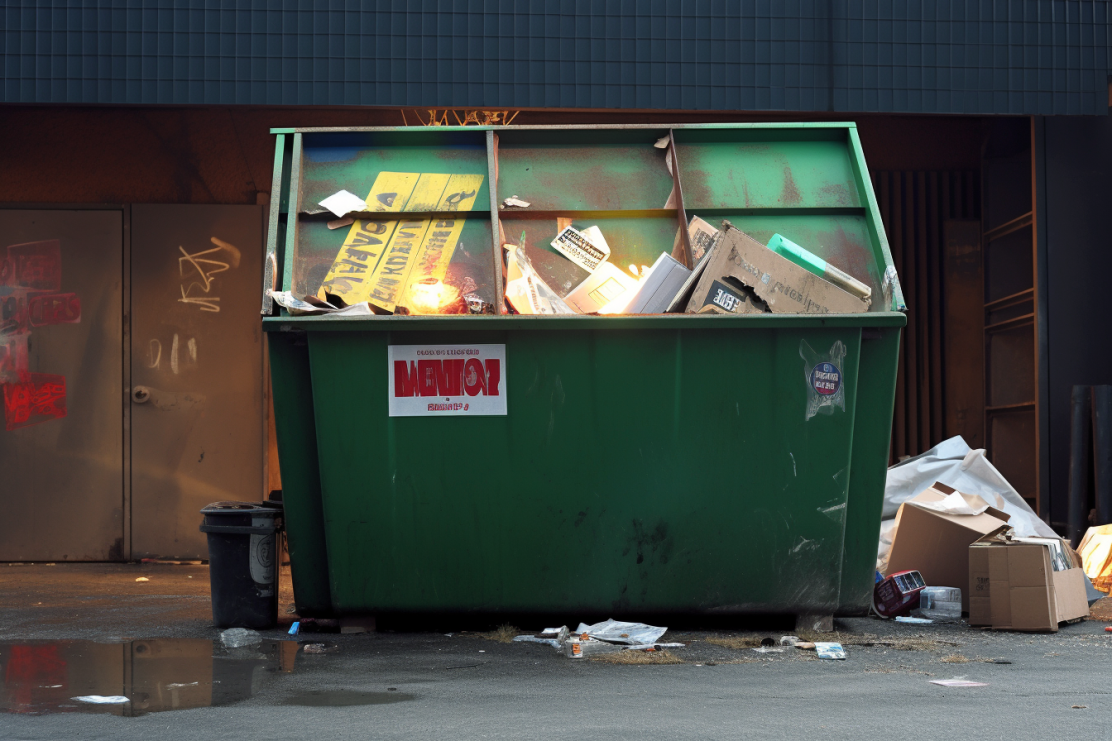Dumpster diving, the act of searching through commercial or residential waste containers for useful items, is a topic that piques the curiosity of many. With increasing interest in sustainability, reducing waste, and finding free goods, people often ask, “Is dumpster diving in Texas illegal?” This article will explore the legality of dumpster diving in Texas, the risks and benefits, and best practices for those interested in this activity. you can also read this Is Texas a No Fault State?
Understanding Dumpster Diving
What is Dumpster Diving?
Dumpster diving involves searching through dumpsters or trash bins to find items that are still usable, recyclable, or valuable. People engage in dumpster diving for various reasons:
- Economic necessity: Some individuals rely on discarded items to meet their basic needs.
- Environmental concerns: Reducing waste by repurposing items that would otherwise end up in landfills.
- Curiosity and treasure hunting: Finding hidden gems or valuable items thrown away by others.
Common Finds in Dumpster Diving
- Food: Often discarded by grocery stores and restaurants.
- Furniture: Usable items left behind during moves or renovations.
- Electronics: Gadgets and devices that may still function or have valuable parts.
- Clothing: Discarded garments that are still in good condition.
Is Dumpster Diving in Texas Illegal?
Legal Perspectives
The legality of dumpster diving in Texas is complex and can vary depending on the specific circumstances and locations. Here’s what you need to know:
Public vs. Private Property
- Public Property: Dumpster diving on public property is generally legal in Texas. Public property includes areas where the public has free access, such as sidewalks or streets.
- Private Property: Dumpster diving on private property without permission is illegal and can be considered trespassing. This includes commercial properties like stores and residential areas like apartment complexes.
Trespassing Laws in Texas
In Texas, trespassing laws are strict. Entering private property without permission can result in legal consequences, including fines or even jail time. It’s essential to understand these laws to avoid legal trouble.
- Criminal Trespass: According to Texas Penal Code § 30.05, a person commits criminal trespass if they enter or remain on someone else’s property without effective consent and with notice that entry is forbidden.
- Notice: Notice can be given verbally, through signage, or by the presence of fencing or barriers.
Local Ordinances
Local ordinances can vary from one city to another within Texas. Some cities may have specific regulations prohibiting dumpster diving, while others may not. It’s important to check the local laws in your area to ensure compliance.
Health and Safety Regulations
Health and safety regulations may also play a role in the legality of dumpster diving. For instance, diving into dumpsters behind restaurants or grocery stores may be restricted due to health codes designed to prevent contamination and disease.
Risks of Dumpster Diving
Legal Risks
- Trespassing Charges: As mentioned earlier, entering private property without permission can lead to trespassing charges.
- Theft: Although items in a dumpster are typically considered abandoned, taking them could be construed as theft in some cases, especially if the dumpster is on private property.
Physical Risks
- Injury: Dumpster diving can be dangerous. Sharp objects, broken glass, and hazardous materials can cause injuries.
- Health Hazards: Exposure to spoiled food, chemicals, and other waste can lead to health issues.
Ethical Considerations
- Privacy Invasion: Dumpster diving in residential areas may infringe on individuals’ privacy.
- Business Impact: Some businesses may see dumpster diving as a threat to their reputation or operations.
Benefits of Dumpster Diving
Economic Benefits
- Free Goods: One of the primary benefits is obtaining items for free, which can significantly reduce personal expenses.
- Resourcefulness: Finding and repurposing discarded items can be a creative and resourceful way to meet needs.
Environmental Benefits
- Waste Reduction: Dumpster diving helps reduce the amount of waste going to landfills.
- Recycling: Recovering recyclable materials contributes to environmental sustainability.
Social and Community Impact
- Community Support: Dumpster divers often share their finds with others, supporting those in need.
- Awareness: The practice can raise awareness about wastefulness and encourage more responsible consumption.
Best Practices for Dumpster Diving in Texas
Legal and Safe Dumpster Diving
Research Local Laws
Before diving, research local laws and ordinances to ensure you are not violating any regulations. This can be done by visiting city websites or contacting local government offices.
Seek Permission
When diving on private property, seek permission from the property owner or manager. This can prevent potential legal issues and foster positive relationships.
Safety Precautions
- Wear Protective Gear: Gloves, long sleeves, and sturdy shoes can help protect against injuries.
- Be Aware of Surroundings: Ensure the area is safe and free from hazards.
- Check for Hazards: Carefully inspect the contents of a dumpster to avoid harmful materials.
Ethical Considerations
- Respect Privacy: Avoid diving in residential areas where you might invade someone’s privacy.
- Leave No Trace: Be respectful and leave the area clean. Do not create a mess or scatter trash.
Useful Tools for Dumpster Diving
- Flashlight: Useful for diving at night or in dark areas.
- Grabber Tool: Helps reach items without having to climb into the dumpster.
- Backpack or Bags: For carrying your finds.
Real-Life Stories and Experiences
Successful Dumpster Diving Stories
- Grocery Store Finds: Many divers report finding perfectly good food discarded by grocery stores. This includes canned goods, packaged food, and produce that may have minor blemishes.
- Furniture and Household Items: Some have furnished their homes entirely with items found while dumpster diving, from chairs and tables to decorative pieces.
- Electronics and Gadgets: Old but functional electronics, such as computers and cameras, are commonly found, offering a tech-savvy diver plenty of parts and components.
Challenges Faced by Dumpster Divers
- Confrontations: Encounters with property owners or law enforcement can be stressful. Always be polite and prepared to leave if asked.
- Physical Challenges: Lifting heavy items and navigating through potentially hazardous environments require caution and physical strength.
Conclusion
So, is dumpster diving in Texas illegal? The answer depends on where and how you dive. While it is generally legal on public property, diving on private property without permission can lead to legal trouble. Understanding local laws, practicing safety, and being respectful are crucial for anyone considering dumpster diving.



